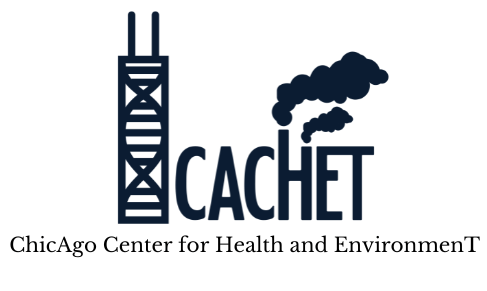CACHET was established to address EHS-related health disparities as the first Center of its kind in the greater Chicago tri-state area (Illinois, Indiana and Wisconsin). The need for such a Center is highlighted by the dramatic racial/ethnic health disparities prevalent in the region for multiple diseases and outcomes. While the national life-expectancy gap between African Americans and Caucasians is narrowing in the US in general, Chicago exhibits one of the largest life expectancy gaps between African Americans and Caucasians in the nation. Contributing to this are disproportionate rates of diabetes, respiratory illnesses, heart disease and cancer. Although studies have identified multiple contributors to these inequities, a major component is undoubtedly rooted in environmental factors, as it is known that the burden of environmental toxicants is not evenly shared. Poorer people and certain racial and ethnic groups (African American, Hispanic, Asian) are among those facing higher exposure to pollutants due to their living conditions/contexts and experience adverse responses to such pollutions.
In January 2015, EHS researchers and relevant leadership of UChicago and UIC developed an EH consortium that led to the establishment of the first NIEHS sponsored environmental health center in the region- ChicAgo Center for Health and EnvironmenT.
The CACHET mission is to elucidate the biological and social underpinnings between relevant urban environmental exposures and human disease and translate the findings to reduce health inequities within our communities. The overarching theme of our research efforts is mitigating disparities in environmental health.
